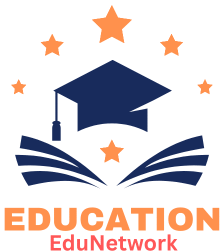Educational consulting is a rewarding profession for those who are passionate about improving educational systems and helping students, organisations, and institutions achieve their goals. Those interested in becoming educational consultants will find all the information they need in this article, including the steps to take, skills to develop, certificates to get, and guidance on how to break into this exciting field.
Can You Tell Me What an Educational Consultant Does?
An educational consultant is a trained expert who advises individuals in the fields of education, parent groups, schools, and students on matters such as course selection, admissions, curriculum development, and teaching methods. Working in tandem with clients, they design courses or policies, choose suitable educational opportunities, and improve students’ performance in the classroom.
Educational consultants may focus on a wide range of areas, including but not limited to: college admissions, curriculum development, special education, educational technology, and school administration.
When Should You Consider a Career in Educational Consulting?
Among the many benefits of becoming an educational consultant are:
-
Many consultants are self-employed or freelance, so they may set their own hours.
-
Influence: Your actions shape the future of education and the success of students.
-
Possibilities Abound: Work with local governments, schools, students, or even other nonprofits.
-
Potential for Growth: The need for expert advice is on the rise due to the ever-evolving nature of education.
Initial Step: Understand the Role of an Educational Consultant
Before deciding to become an educational consultant, it is crucial to understand the everyday tasks involved:
-
Assess current educational programs and propose changes for improvement.
-
Assist students when they choose their educational institutions.
-
Make available lectures and training sessions for school officials and teachers.
-
Improve educational results via the use of data analysis.
-
Recommend resources and tools for the classroom.
If you are familiar with this role, you can determine if it is a good match for your interests and abilities.
Step 2: Obtain Necessary Credentials and Training
Consulting firms that specialise in education often employ individuals with bachelor’s degrees in fields like psychology, counselling, or education. However, if you really want to make an impression, you might think about getting a Master’s degree or higher in educational administration, counselling, or leadership.
Degrees that are relevant comprise:
-
Education, psychology, or social science bachelor’s degree.
-
Educator, school counsellor, educational leader, or curriculum developer with a master’s degree.
-
It is helpful, but not required, to have a Ph.D. in education or a related field.
Certifications in educational leadership, counselling, or special education may further boost your professional standing.
Third, Have Some Teaching or Education Experience
This is a must. Consultants in the field of education often have backgrounds in administration, classroom instruction, or school counselling. Presenting this background:
-
Understanding the dynamics of the classroom and the school.
-
Understanding of many educational initiatives.
-
Competence in working closely with kids, parents, and teachers.
Most businesses and clients prefer to work with consultants who have been in the field of education for three to five years.
The Fourth Step: Learn Particular Information
Achieve your goals as an educational consultant by honing these crucial skills:
Communication Expertise
Keeping lines of communication open with students, parents, and school officials is essential.
Analytical Proficiency
The ability to assess educational programs, examine data, and provide workable recommendations.
Counselling and Advising Abilities
Helping kids figure out what they want to do with their lives and careers requires empathy and mentoring skills.
Project Management
Seminar, workshop, and educational initiative preparation requires excellent organisational skills.
A Familiarity with Educational Technology
Knowing one’s way around various online learning tools and resources is becoming an absolute must.
Fifth, Build Your Credibility and Network
Networking plays a crucial role in the field of educational consultancy. Make an effort to network with other professionals in the field, attend relevant conferences, and join groups like the Independent Educational Consultants Association (IECA).
Publishing articles or blogs on topics linked to education could help you establish yourself as an authority in the field. Gain exposure and practical experience by volunteering or assisting schools.
Examine Certification or Licensing as Step 6
Professional credibility is bolstered by certification, however it is not mandatory. Here are some of the certificates:
-
Certified Educational Planner is abbreviated as CEP.
-
National Board Certification is an option for teachers who want to enter the consulting field.
-
Credentials in school counselling or management from a certain state.
Research relevant certification programs.
Step 7: Launch Your Career as an Educational Consultant
A consulting profession may be launched in several ways:
-
Join a consulting firm or work for a nonprofit that focusses on education.
-
Set up shop as a consultant or freelancer.
-
Join the ranks of college and university advisors.
-
Enter into an agreement with educational districts or charities.
You may start off by working part-time or juggling your current academic and consultancy responsibilities. To attract more customers, consider providing complimentary seminars or first consultations.
Step 8: Get the Word Out About What You Have to Offer
Effective marketing allows you to attract customers:
-
Build a professional website showcasing your wares.
-
You might use search engine optimisation strategies to focus on terms like “education consulting services,” “college admissions consultant,” and “how to become an educational consultant.”
-
Use social media to disseminate success stories and how-to guides.
-
Enquire about references and reviews from satisfied clients.
-
Consider creating digital resources, such as guides or checklists, to attract potential customers.
The Ninth Step: Maintain Your Professional Development
Education is a dynamic and ever-evolving discipline. Stay current by:
-
Attending classes and seminars.
-
Engaging in online education.
-
A review of industry publications.
-
Joining and actively participating in professional organisations.
Expanding your service alternatives and improving your proficiency are both facilitated by continuing education.
Common Difficulties and Their Solutions
Market Rivalry
One way to distinguish out is to develop a niche, such as helping students with special education or applying to college.
Building Trust with Clients
Acquire credibility by being honest, displaying qualifications, and satisfying clients.
Effectively Managing Tasks
Master the art of time management to juggle several jobs and clients.
Issues and Solutions (FAQs)
What is the typical length of time required to become an education consultant?
It typically takes five to seven years when relevant work experience and schooling are included.
Can one become an educational consultant without a teaching licence?
It is not necessary to have a teaching license, however it may boost your reputation.
Is remote work an option for educational consultants?
Many advisers, especially those who help with college applications and career guidance, do their work from the comfort of their own homes.
On average, how much money does a consultant in education make?
An individual’s annual salary might vary anywhere from $50,000 to $100,000, depending on factors such as experience and location.
In Conclusion
If being an educational consultant has been a mystery to you, this article should put your mind at ease. With the right education, work experience, skills, and networks, you can help kids and schools succeed in your chosen professional path. Working as an educational consultant may bring you a sense of purpose, freedom, and the chance to make a meaningful difference in the field of education.
Get a degree in a relevant subject, work your way up the ladder, and never stop learning. Your journey to the role of educational consultant begins now!
